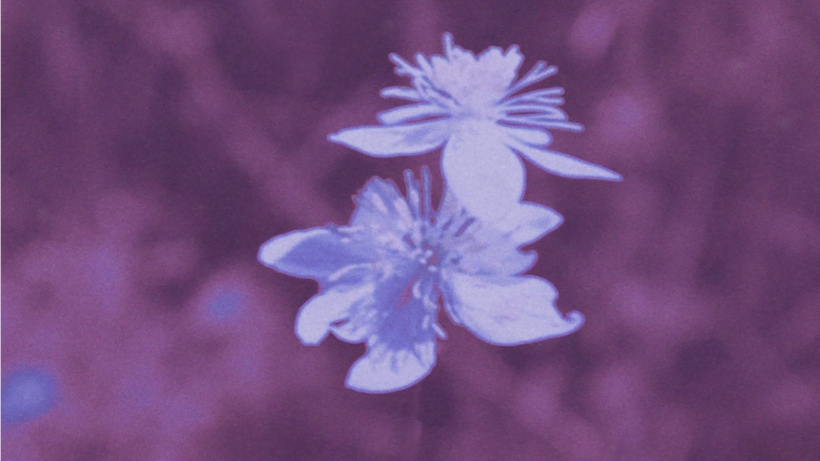Oskar Alegria, between cinema and poetry
2024/04/29
Euskara. Kultura. Mundura.
Oskar Alegria (Pamplona, 1973) is an atypical filmmaker. He has worked as a journalist, and between 2013 and 2016 was artistic director of the Punto de Vista Festival in Pamplona. He made his debut as a director in 2012, and ever since then has offered audiences stories of exploration from an unconventional perspective. His journalistic background, focused on travel, bears a close connection to his filmmaking. His latest film, ´Zinzindurrunkarratz´ (2023), recently won an award at the Festival du Cinèma Espagnol de Nantes, where it featured in Fenêtre Basque, a section dedicated to Basque cinema organised in partnership with the Etxepare Euskal Institute.
“I really like accidents, they have a poetic quality about them. There’s a new language in things that don’t quite work because they often reveal a hidden virtuosity”
Alegría’s experimental documentaries: new paths to explore
Alegría began experimenting with photography, exploring new perspectives to capture cities like London from angles less commonly seen. In his films, he embarks on a journey, portraying his travels in a first-person narrative akin to a travelogue. His films celebrate slowness, waiting and memory. He produces minimalist films, occasionally bordering on silent, where sound plays a crucial role in constructing the narratives of his cinematic explorations.

First exploration: a relic kept since 1926
He made his directorial debut in 2012 with ‘Emak Bakia baita´, a film about the search for the house on the French Basque coast where Man Ray filmed his cinepoem ´Emak Bakia´ in 1926. Alegría aims to find that house, using only three clues from Man Ray´s film: two columns, a view of the coast, and the image of the main door. He undertakes this search while filming shots of his journey and interspersing them with shots from Man Ray´s film. Midway through the movie, he finds the house and starts the film anew. The house is just an excuse for Alegría; the objective is the journey, not the destination.
Memory of an inland castaway
In 2019 he released ‘Zumiriki’. The film tells the story of a ‘castaway’ isolated in the forests of the Navarrese Pyrenees who tries to reconnect with nature and his childhood, waiting for his memories to resurface.
The word zumiriki means ‘river island’ in Basque. It refers specifically to an island that the filmmaker visited as a child, which was submerged in water when a dam was built. The protagonist of the documentary is Alegría himself when he decided to isolate himself for four months in a cabin in the forest, accompanied only by a vegetable garden, two chickens and 70 books.
A path of ancient sound
With ´Zinzindurrunkarratz´ (2023) Oskar Alegría decided to retrace the transhumance route of the shepherds from his village to the mountains. He had planned to use his family´s old Super 8 camera, but after 41 years of disuse, it no longer recorded sound. During this journey, he used a tape recorder to capture 55 sounds that complement his visual narrative.
The filmmaker embarks on a poetic journey through a memory of another era, where only fragments remain. Returning to the paths once traversed by his grandparents in the mountains of Artazu, Navarre, he captures the echoes of a world that has long ceased to exist.
The title of the film is a deliberate declamation structured around onomatopoeic sounds: a gentle breeze (zinzin), a falling stone (durrun), and a summit struck by lightning (karratz). These sounds represent the duration of different natural events.
An award-winning production by the public and international critics
Chosen by the magazine Variety as one of the ten most promising filmmakers on the Spanish scene, his first feature film, ´Emak Bakia baita´ (2012), toured 70 international festivals, won 17 awards and was translated into 13 languages. His second feature film, ´Zumiriki´ (2019), had its international premiere in the Orizzonti section of the Mostra de Venezia, and won a total of 9 awards, including Best Non-Fiction Film in the New Waves section at the Seville Film Festival and the Grand Prix at the Genoa Film Festival.
‘Zinzindurrunkarratz´ (2023) had its world premiere at the Telluride Film Festival (USA). It has won several awards such as Best Anthropological Film at the Festival dei Popoli in Florence (Italy), the Gian Paolo Paoli Award at the DOC New York Festival (USA), and the DOC Spain Award for Best Film at the Seminci Festival in Valladolid (Spain). This past March it also won Best Documentary at Festival du Cinèma Espagnol de Nantes, where it was part of the Basque films series Fenêtre Basque, organised in collaboration with the Etxepare Basque Institute.
Etxepare Basque Institute and the artist
The latest film by Oskar Alegria, ´Zinzindurrunkarratz´, has been screened in the Fênetre Basque section of the Festival du Cinèma Espangol de Nantes. This section, promoted by Etxepare Euskal Institutua, offers a selection of some of the most relevant Basque productions of the year, as well as works by outstanding Basque filmmakers.






